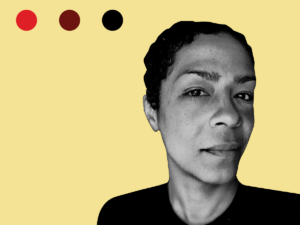
December 4, 2018; Yes! Magazine
“In 2017, Minnesota was named the second-most unequal state for Black people in a study of Black and White inequality by 24/7 Wall St., a financial news and opinion website,” reports Ivy Brashear for Yes! Magazine. In particular, Minneapolis’ Northside has a severe shortage of shopping centers, grocery stores, and banks. Poverty is widespread in the city’s Near North and Camden neighborhoods. A local activist, Me’Lea Connelly, observed that systemic oppression was stripping wealth from the community and decided to do something about that.
Connelly and others recognized that the community needed to take the lead in its own revival—or else risk having others develop the community, but in ways that promote gentrification and which would likely drive many current residents out. Gaining control over the money was a key part of the vision. “How do we take control of our own community and not let the lack of financial services in our community dictate our future? We have to have our own,” Connelly tells Brashear.
In 2016, Connelly helped found Blexit shortly after Philando Castile was shot and killed by police. “Blexit,” of course, is a play on Brexit (which had occurred in the month before Castile’s death) and refers to “Black exit,” or economic self-determination. As the group’s website explains, “The Black economy contributes 1.1 trillion dollars to the American economy, not to mention the revenue we generate as victims of racist and predatory practices across public and private sectors. The time has come to shift our dollars in ways that benefit and protect us all.”
The following year, in 2017, Connelly and her colleagues developed the idea for Village Financial Cooperative, a Black-owned credit union. The group has succeeded in raising over $1 million and hopes to get its charter and begin operating in 2019. Over 1,300 community members have already pledged in writing to open accounts at the credit union when it opens.
Sign up for our free newsletters
Subscribe to NPQ's newsletters to have our top stories delivered directly to your inbox.
By signing up, you agree to our privacy policy and terms of use, and to receive messages from NPQ and our partners.
The North Minneapolis credit union is impressive in its own right. But, as Brashear writes, it is also a node in a large emerging network of what is being labeled “non-extractive” or “regenerative finance.” Specifically, Village Financial Cooperative credit union would also serve as a member-owner in an emerging national financial network known as the “Financial Cooperative.”
What makes a loan “non-extractive”? There are some features that make the funding model of the Financial Cooperative unique, including organizing loans so they don’t require collateral or go into repayment until the co-op makes a profit. In return, the Financial Cooperative may get a larger “royalty” payment if the business succeeds—a quasi-equity feature. The idea is to align the interests of borrowers and lenders, so they work together as a team, rather than as adversaries. This includes having borrowers that make good on their loans serve on loan committees. It also requires that the lender put a high degree of energy into providing the technical assistance that borrowers need, so they are able to organize their businesses in ways that do in fact turn a profit.
Founding members of the Financial Cooperative are The Working World, the Southern Reparations Loan Fund, the Climate Justice Alliance, and the Baltimore Roundtable for Economic Democracy. All told, there are now 23 members either actively lending or, like Village Financial, in development, across the country participating in the cooperative. Other members include the Detroit Community Wealth Fund, the Boston Ujima Project, Cooperation Richmond in California, the Cincinnati Union Co-op Initiative, and Cooperation Central Appalachia Inc. in Charleston, West Virginia.
At present, the Financial Cooperative has a modest $7 million available for lending. It hopes to raise $20 million within the next five years. It’s set up as a revolving loan fund—using money earned on old loans to support additional lending.
The goal says Marnie Thompson, who is a project officer with the Southern Reparations Loan Fund and is on the Financial Cooperative’s investment committee, is “to take money that’s been generated through human labor and put it to work building a more democratic, just, and sustainable economy that is owned and controlled by the communities that have been most excluded and extracted from.”—Steve Dubb















